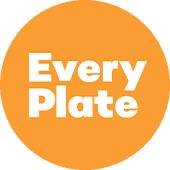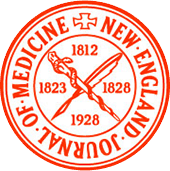Gluten-free foods have recently become quite popular. Nowadays, you’ll find gluten-free breads, pastries, candies, and more at your local grocery store. Because of this you might be wondering whether gluten is good or bad for you.
There’s no one-size-fits-all answer to this: gluten can harm some people, but it seems to be totally fine for others.
In the health and wellness world, many influencers and companies claim that cutting out gluten will give you more energy, help you lose weight, and lift your mood. But in truth, your ideal diet depends on your body’s unique biology, which means that dietary requirements differ from one person to the next.
Here’s what you need to know about gluten, gluten intolerance, and celiac disease.
What is gluten?
Gluten refers to a group of proteins (prolamins) found in wheat, barley, and rye. These prolamins give these ingredients a glue-like consistency when mixed with water. This is why wheat flour is ideal for baking. It also helps bread rise and increases the shelf-life of baked goods and baking ingredients.
Gluten can be found in breads, pastas, and baked goods, but it can also be found in pre-made foods like soups and stews. Flour is often added to sweet treats and pre-made foods as a thickening agent, and added gluten can be used to improve the shelf-life of certain foods.
Gluten can also found in:
- Brewer’s yeast
- Malt
- Beer
- Certain candies
- Certain chocolate drink mixes
- Certain cereals and granolas
- Sauces and dressings
- Some meat substitutes
Gluten can also be found in places you wouldn’t expect, like in certain multivitamins and dietary supplements.
How does gluten harm the body?
As mentioned, gluten is an umbrella term that includes a number of different proteins. While some people can digest those proteins adequately, others can’t.
Proteins are typically broken down by the protease enzymes in your digestive tract. However, gluten proteins are resistant to these enzymes. These gluten proteins can cross over through the tissue in your digestive tract and into the rest of your body.
Your body’s immune system might attempt to fight these proteins. For some people, this immune response might make them sick. Those who have celiac disease – an autoimmune disease – could get severely sick if they eat gluten.
What is gluten intolerance?
“Gluten intolerance” is a broad term that refers to three health conditions: celiac disease, non-celiac gluten sensitivity, and wheat allergies.
While the symptoms differ from one condition to the next, they all generally cause you to feel ill after you consume gluten.
What is celiac disease?
Celiac disease is an autoimmune condition that involves the inflammation of your small intestine.
When someone with celiac disease consumes gluten, their small intestine will be damaged. This can make it difficult for their body to absorb nutrients, which can lead to weight loss, diarrhea, and pain. People with celiac disease might also have anemia, osteoporosis, and skin diseases.
About 1 percent of the world’s population has celiac disease, although it’s far more common in certain countries, like Finland, Mexico, and some northern African regions. Research shows that, in these areas, celiac disease can affect about 2 to 5 percent of the population.
Celiac disease is usually diagnosed by intestinal biopsy. It could also be diagnosed by blood testing for antibodies. There is no way to treat celiac disease other than avoiding gluten entirely.
What is non-celiac gluten sensitivity?
Some people who don’t seem to have celiac disease or wheat allergies find that they have a negative reaction to eating gluten. This is called non-celiac gluten sensitivity (NCGS).
If you have NCGS, you might find that gluten causes you to have symptoms like intestinal pain and diarrhea as well as fatigue, joint pain, and headaches.
To be diagnosed with NCGS, your doctor will first rule out a wheat allergy and celiac disease.
What is a wheat allergy?
Wheat allergies and celiac disease are often confused. They are two different conditions, and it’s possible to have both at the same time.
These allergies are particularly common in children, who might outgrow it. However, many adults have wheat allergies too. They might have uncomfortable symptoms when they eat or inhale wheat.
The symptoms of wheat allergies can include:
- Nausea and vomiting
- Nasal congestion
- Hives or rashes on skin
- Bloating
- Anaphylaxis (a potentially fatal allergic reaction that causes difficulty breathing)
Symptoms vary from person to person. For some, it might look like mild nausea and a stuffy nose. In others, wheat exposure can be fatal.
To diagnose a wheat allergy, an allergist will usually test your blood or do a skin-prick test.
Autoimmune disorders and gluten
Celiac disease is one kind of autoimmune disease. Other common autoimmune diseases include:
- Hashimoto’s thyroiditis, which causes hypothyroidism
- Psoriasis, a painful skin condition
- Rheumatoid arthritis, where your joints become swollen and stiff
- Lupus, which can affect the whole body
- Inflammatory bowel disease (IBD), not to be confused with IBS
- Type 1 diabetes
- Multiple sclerosis
If you have an autoimmune disease of any kind, including those not listed here, your doctor might advise you to avoid gluten. Gluten seems to worsen the symptoms of autoimmune diseases, according to research. This might be because people with celiac disease are likely to have other autoimmune disorders. Some studies have found that people with autoimmune diseases benefit from a gluten-free diet.
So, if you have an autoimmune disease, you might want to eliminate gluten from your diet. Monitor your symptoms and see if they improve. As always, it’s wise to seek your doctor’s advice before making a major change in your diet.
Should everybody cut out gluten?
If you don’t have one of the above conditions, should you avoid gluten? That’s not 100% clear. Although some people claim that everybody should cut out gluten, there’s no evidence that shows it will benefit people without those conditions.
However, many people who don’t seem to have gluten intolerance feel better after they start avoiding gluten. This might not be because of gluten itself, but because of other factors. For example, going gluten-free might lead you to cut down on high-carbohydrate foods and processed foods. Eating these foods in excess can make you feel ill.
If you suspect you have gluten intolerance, you might find it helpful to temporarily cut out gluten and monitor how you feel. You can keep a notebook where you write down what you eat and what your symptoms are like.
How do I cut out gluten?
When you think about it, gluten is nearly everywhere. It’s in obvious places, like breads and pastas, but also in sauces, certain chocolate drinks, and candies.
Fortunately, since more people are aware of gluten sensitivities nowadays, it’s now easier to find gluten-free foods than ever. Gluten-free foods are often labeled as such. Remember that wheat-free is not the same as gluten-free – a wheat-free food can still contain gluten.
It’s important to read the labels of everything you eat. Read the ingredients list and avoid foods that contain:
- Wheat
- Barley
- Rye
- Malt
- Oats (unless gluten-free oats)
- Brewer’s yeast
Check the allergens list for gluten and any of the above ingredients.
Although many people confuse gluten with all grains, some grains don’t contain gluten. This includes corn, quinoa, teff, certain rices, sorghum, and millet. Gluten-free grains are often used to make gluten-free versions of bread, crackers, pastas, and more.
Thankfully, it’s now a little easier to find gluten-free alternatives to your favorite foods. Gluten-free oats, breads, and pastas are now far more common. You might even find gluten-free cakes, beers, and cookies that taste just as good as your favorite treats. Some bakeries and cafes are specifically gluten-free.
Eating out?
One of the most difficult aspects of having a gluten-free diet is navigating restaurants and pre-made food. Flour is often used as a thickening agent, for example. Even if a meal doesn’t contain any gluten itself, it might have come into contact with gluten during the preparation process. For some people, this alone can trigger an immune response.
Opt for gluten-free meal services, premade foods, and restaurants. Depending on your sensitivity level, you might get away with choosing a gluten-free option in a restaurant that uses gluten in other meals. Don’t be afraid to enquire with a company or business about whether or not they use gluten.
The Celiac Disease Foundation has helpful resources on eliminating gluten. They have lists of foods to avoid as well as meal plans, recipes, and tip sheets for gluten-free living. Although eliminating gluten can be difficult, it’s possible to still enjoy a variety of tasty, nutritious food.
Getting diagnosed with gluten intolerance
If you suspect that you’re gluten intolerant, you’ll probably want an official diagnosis.
Your first port-of-call is to go to your GP. They might order blood tests, or they will refer you to a dietician and/or allergist. Some people might struggle to get a diagnosis straight away, and they might have to see a few specialists to get to the bottom of their symptoms.
Gluten intolerance is often diagnosed by a blood test, skin-prick test, or biopsy. But as mentioned, your doctor or dietitian might also suggest you simply eliminate gluten from your diet and monitor your symptoms.
How we can help
Food allergy tests are the best way to figure out whether you have a food intolerance of any kind. However, they’re often extremely expensive. In a country where medical expenses are unaffordable for many, a great number of people might be sensitive to gluten without knowing it.
Discounted lab work is one of the many services we offer Knew Health Members. We include food allergy tests as well as fasting insulin tests and hormone checks. These tests help you identify any current or potential health issues. You’ll be equipped to make better decisions about your lifestyle and diet.
Gluten is a controversial topic in health and wellness circles. Some people believe everyone should cut out gluten entirely. But many people seem to be able to tolerate gluten well. If you suspect you have a gluten intolerance, whether it’s a wheat allergy or celiac disease, talk with your doctor about getting a diagnosis.
Disclaimer: This information is being provided to you for educational and informational purposes only. It is being provided to educate you about how to take care of your body and as a self-help tool for your own use so that you can reach your own health goals. It is not intended to treat or cure any specific illness and is not to replace the guidance provided by your own medical practitioner. This information is to be used at your own risk based on your own judgment. If you suspect you have a medical problem, we urge you to take appropriate action by seeking medical attention.









































